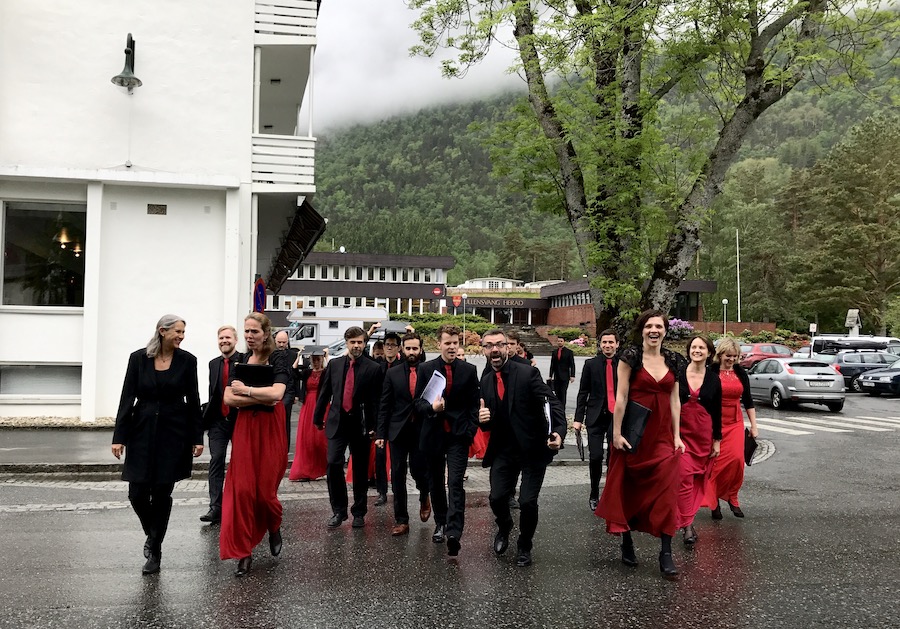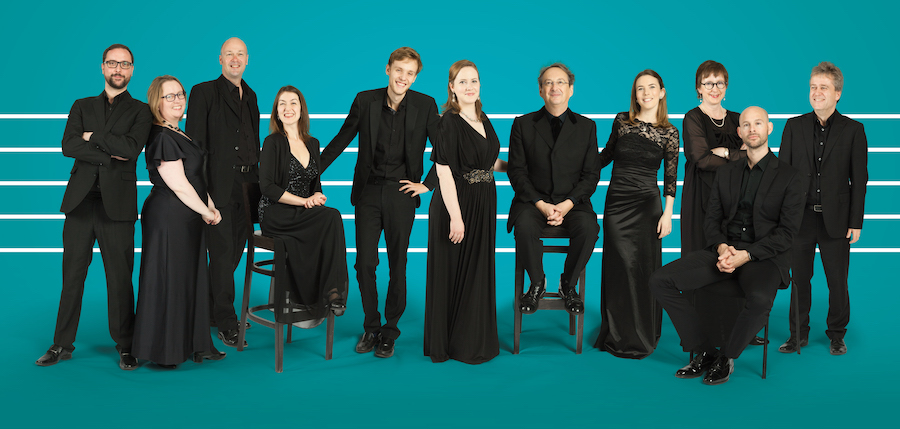In 2019 I was jolted by a concert of classical music. This was a rare occurrence. When Teodor Currentzis directed his Siberian ensemble MusicAeterna in a performance of Verdi’s Requiem at New York’s multi-disciplinary space The Shed last November, the experience was so powerful that for a moment, I forgot that I’d considered the work to be a museum piece. Currentzis’ reading of this 1874 mass for the dead was at once relevant, contemporary, and life affirming. I was awakened by the immediacy and urgency that Currentzis brought to it. I was not alone. The sold-out audiences of hipsters and traditionalists were with me. Sure, Currentzis was fortunate in this instance. Verdi’s palpable operatic dramatics were on his side. But how many Verdi Requiems have we sat through for our world to remain yet again unchanged? Trying to find the vitality in museum pieces is a challenge, but, for musicians in the 21st century it is also the mandate. So why am I telling you this?
 The Norwegian Soloists’ Choir. Photo supplied
The Norwegian Soloists’ Choir. Photo supplied
At this year’s Adelaide Festival, Tido Visser, the Artistic and Managing Director of Netherlands Chamber Choir, presented his project 150 Psalms. Visser’s vision began three years ago. His mission – to reconnect 21st-century audiences with the 3000-year-old texts and settings of the 150 psalms – is based on his trust in “the magic of choral singing” to “connect us” and “unify us.” Visser’s LinkedIn page reads “urgent art is needed in a world that is currently on fire, literally,” he says. So, if Visser’s LinkedIn page is true to his mission, then we might suggest here that 150 Psalms is somewhere on Currentzis’s wavelength. The expectations were high.
Visser’s 150 Psalms has had several festivals outings, including iterations at the Lincoln Center’s White Light Festival, and Brussel’s ever expanding Klarafestival. For this 2020 Adelaide Festival he has brought together the Norwegian Soloists’ Choir, The Tallis Scholars, and Australia’s The Song Company to join his own choir to assist him on his mission. Visser’s curation – the settings of 150 Psalms by 150 composers across 10 centuries – are presented in theme, ranging from Abandonment, Gratitude, Powerlessness to Oppression, and Celebration of Life. For the festival, the 12 concerts took place in venues like Adelaide’s cathedrals and the Adelaide Hebrew Congregation. Each performance was preceded by a guest talk, somewhat in the vein of a secular homily.
 The Tallis Scholars. Photo © Nick Rutter
The Tallis Scholars. Photo © Nick Rutter
My spiritual pilgrimage took in two concerts: Path of Life, presented by The Norwegian Soloists’ Choir, and Power and Oppression, delivered by The Tallis Scholars. Both choirs have stellar reputations that precede them. Both presented pristine performances – impeccable intonation with an abundance of pleasing singing. Both choirs fulfilled all the criteria you expect from a world class ensemble: consensus in phrasing, an unwavering discipline to unanimity and to lesser and greater extents, crisp diction. Under the direction of conductor Grete Pedersen, the Norwegian Soloists’ Choir were most transcendent in Brahms’s setting of Psalm 126, Selig sind, die da leid tragen. Forming a circle around the perimeter of St Francis Xavier’s Cathedral, they cradled the audience. The Tallis Scholars found their best moments in simplicity. The opening item: the Gregorian chant setting of Psalm 58, According to the Church of Rome, sung by the women’s chorus with candour and effortless flow.
Both ensembles – the Norwegian Soloists’ Choir and the Tallis Scholars – gave pious, reverential, and religious interpretations rather than pointing us in the direction of the universal or the secular. Is there a difference? I think so. There were no moments that broke the moulds of tradition. I, for one, did not encounter the contemporary relevance from these performances. The texts did not reach me with new insights or colourisations. I also wondered if the setting of these concerts in churches was in fact counterintuitive to the mission. Houses of worship with their iconography are not neutral. Spirituality is a personal connection, so I cannot speak for the audiences that filled these concerts.











Comments
Log in to join the conversation.